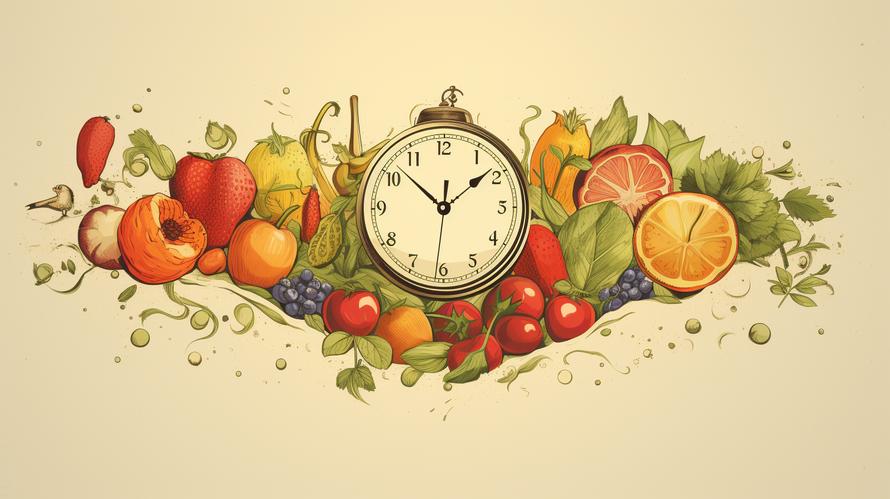A single heartbeat can tip the scales. That subtle, steady thump, often unnoticed amid the cacophony of life, is a testament to our existence—a fragile whisper of vitality that can roar with vigor or fade into silence. What if I told you there was an ancient practice, a ritual forgotten by time, that holds the key to not just keeping that beat going, but making it more resilient, more robust—a drumbeat of longevity?
This ritual does not come from expensive supplements, nor from cutting-edge pharmaceuticals. It traces back to our ancestors, who, by necessity or spirituality, practiced periodic abstinence from food: Fasting. Far from being a mere weight-loss trend or a dietary fad, emerging science reveals that fasting wields a profound influence over our heart’s health—a veritable fountain of youth that might be as simple as skipping a meal or two.
Let’s dive, then, into a fascinating paradox—how eating less could mean more beats for your heart.
The human heart is an organ of paradoxes. Despite accounting for only about 2-3% of our body weight, it tirelessly pumps approximately 2,000 gallons of blood, nourishing all our organs and tissues each day. While we’ve all been instructed to “eat well” for heart health, intriguing evidence now suggests that periods of not eating might be just as crucial.
In a study that caught the eyes of cardiologists worldwide, researchers at the Intermountain Medical Center Heart Institute in Utah found that routine periodic fasting was associated with a lower risk of heart failure and a longer life span. Patients who practiced regular fasting had a 71% reduction in the risk of coronary artery disease, the most common type of heart disease.
But how does voluntarily forgoing food help safeguard our heart?
The answer might lie in a process called autophagy—a cellular “cleanup” regimen. When we fast, our cells initiate this process, breaking down and removing dysfunctional proteins and components. It’s akin to a deep clean of your cellular homes, which, in the case of heart cells, can mean removing debris that contributes to heart disease. Enhanced autophagy is believed to improve the heart’s ability to cope with stress and may reduce damage from conditions like hypertension and diabetes.
Furthermore, fasting shifts the body’s metabolism from utilizing glucose to burning fat for fuel, a state known as ketosis. This metabolic switch has been shown to lower blood pressure, a major risk factor for heart disease, and improve lipid profiles, including reductions in ‘bad’ LDL cholesterol and triglycerides, as well as increases in ‘good’ HDL cholesterol.
Intermittent fasting, in particular, where eating is restricted to a specific window—often 8 hours a day or less—has shown promise in enhancing heart health. The scientific community is alight with studies outlining how this pattern of eating can potentially reset the metabolism and lead to improved heart function.
What’s more fascinating is the emerging evidence linking fasting to the improvement of heart rate variability (HRV), a measure of the time variation between individual heartbeats. A higher HRV is associated with cardiovascular fitness and resilience, while lower HRV is linked to increased risks of heart disease and sudden cardiac events. By enhancing HRV, fasting may not only improve heart health but also help in modulating stress response.
If you’re envisioning a monastic existence devoid of culinary delights, fear not. Fasting doesn’t necessitate a radical lifestyle overhaul—small, sustained periods of fasting can be woven into the fabric of your life with relative ease. For instance, time-restricted eating, where you consume all your meals within, say, an eight-hour window, still allows for satiating, heart-warming meals, while conferring cardiovascular benefits.
Still, it’s prudent to note that fasting isn’t a one-size-fits-all solution. Certain populations, like pregnant women, those with a history of eating disorders, and individuals with certain medical conditions should approach fasting cautiously or not at all. It’s essential to consult with your healthcare provider before embarking on a fasting journey, especially if you’re considering longer fasts or have underlying health conditions.
But for those able to dip their toes into fasting’s restorative waters, the potential rewards for heart health are enticing. Fasting may safeguard the unfaltering rhythm of your life’s drumbeat, ensuring that your heart plays on against the symphony of the years. Consider it a natural tune-up, leveraging the wisdom of the ages to keep the timeless engine within your chest humming smoothly.
As with any foray into lifestyle transformations, knowledge is your compass. Embark on your fasting voyage armed with research, guided by medical expertise, and buoyed by the compelling promise of a stronger heart. Balance your fasting endeavors with a heart-healthy diet rich in fruits, vegetables, whole grains, and lean proteins during non-fasting periods to amplify the benefits.
Fasting, however, is not just a tool for the heart; it’s a tapestry of potential that weaves through the fabric of overall well-being, infusing it with vitality. As you unravel the secrets of this ancient practice, your heart indeed might not be the only thing to whisper in hushed tones of gratitude. Your entire being could resonate with a newfound harmony, a rhythm as old as time, rediscovered in the pulse of the present.



